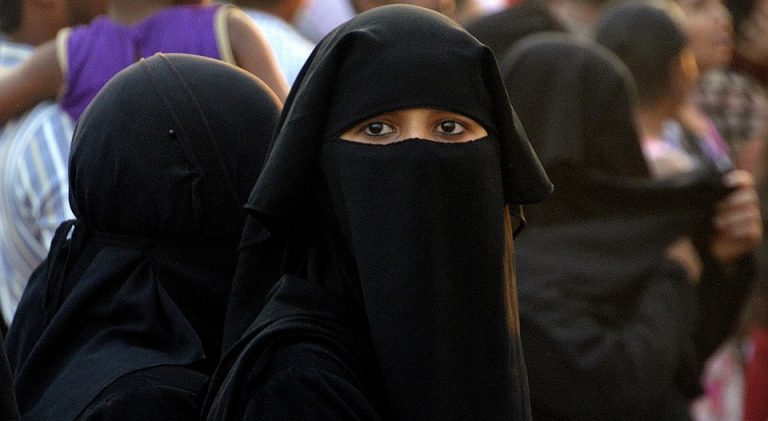
This article was originally published by Radio Free Europe/Radio Liberty and is reprinted with permission.
A viral video appearing to show an Iranian man attacking two unveiled women in a shop in the holy city of Mashhad has provoked widespread anger.
Video footage posted on March 31 purportedly shows the man assaulting the two female customers, who were not wearing the mandatory hijab, or Islamic head scarf, following a verbal altercation.
The man is then seen pouring what appears to be a tub of yogurt on the women’s heads before he is confronted by a male employee at the shop. It was unclear if the individual was the shopkeeper or the owner.
Iran’s judiciary announced on April 2 that the two women — a mother and daughter — were arrested for violating the hijab law. The suspected attacker was in custody for “disturbing public order,” the judiciary said.
Meanwhile, the shop owner, Abbas Hajarpur, was arrested and released on bail. Hajarpur told the Rokna news site that he was due in court on April 3 “to provide explanations.” He said his shop had been briefly closed.
The incident has underscored the routine harassment and violence that Iranian women face at the hands of the morality police and pro-government vigilantes seeking to enforce the head-scarf law.
A growing number of Iranian women are appearing in public without the hijab, in a direct challenge to Iran’s clerical regime.
Women have been emboldened by the nationwide anti-regime protests that erupted in September 2022 following the death of 22-year-old Mahsa Amini soon after she was arrested by the morality police for allegedly violating the hijab law. During the demonstrations, women and girls removed and burned their head scarves.
Even as the protests have waned in recent months, women have continued to flout the hijab law. That is despite renewed warnings from the authorities that women who violate the law will be punished.
‘Discriminatory Laws’
Many Iranians on social media have directed their anger over the incident in Mashhad at the authorities. They have accused the government of violently enforcing the hijab law and encouraging vigilantes.
Iranian screenwriter Mehrab Ghasemkhani said on Instagram that the state had divided people into “good and bad” citizens, resulting in a “a deep and frightening gap” in society. “It is the result of discriminatory laws that have always encouraged and honored one part of society and humiliated and punished the other part,” he said.
Mohammad Ali Abtahi, who served as a vice president under former reformist President Mohammad Khatami, called the incident an act of “bigotry.”
Lawyer Ali Mojtahedzadeh praised the “honorable” male employee who confronted the suspected attacker in the shop. “It was a moral, human, and legal action that deserves to be honored,” he said.
Amir Shahla, a former member of the city council in Mashhad, said on Instagram that he had received numerous messages from locals concerned about Hajarpur’s welfare and the fate of his shop. Shahla said some locals had sent flowers and sweets to the shop to express gratitude to the male employee who confronted the suspected attacker.
The Asr-e Iran news site expressed hope that the suspected attacker will be dealt with “decisively and transparently.” “The verdict will go beyond a judicial ruling and become part of [Iran]’s contemporary history,” it said in an editorial.
‘A Legal Matter’
The incident in Mashhad comes as the authorities have doubled down on enforcing the hijab law. Some hard-line lawmakers have even proposed new tougher measures to enforce the head scarf.
On April 1, Iran’s ultraconservative President Ebrahim Raisi said the hijab was “a religious necessity” and “a legal matter.”
“All members of society, particularly women and our dear girls who have always demonstrated they’re committed to the law, hopefully from now on they will also show their commitment to the principles and laws of society,” he said.
In a statement on March 30, the Interior Ministry said that “there had not been and will not be any retreat regarding religious principles,” adding that the hijab will remain “one of the practical principles of the Islamic Republic of Iran.”
Earlier in March, judiciary chief Gholamhossein Mohseni-Ejei warned that women who violate the hijab law will be punished “without mercy,” adding that removing the head scarf shows “enmity towards the establishment and its values.”
Meanwhile, Iran’s Education and Science ministries published separate statements on April 3 saying they will no longer provide educational services to student in schools and universities who do not follow the dress code, including wearing a head scarf.
0 comments :
Post a Comment